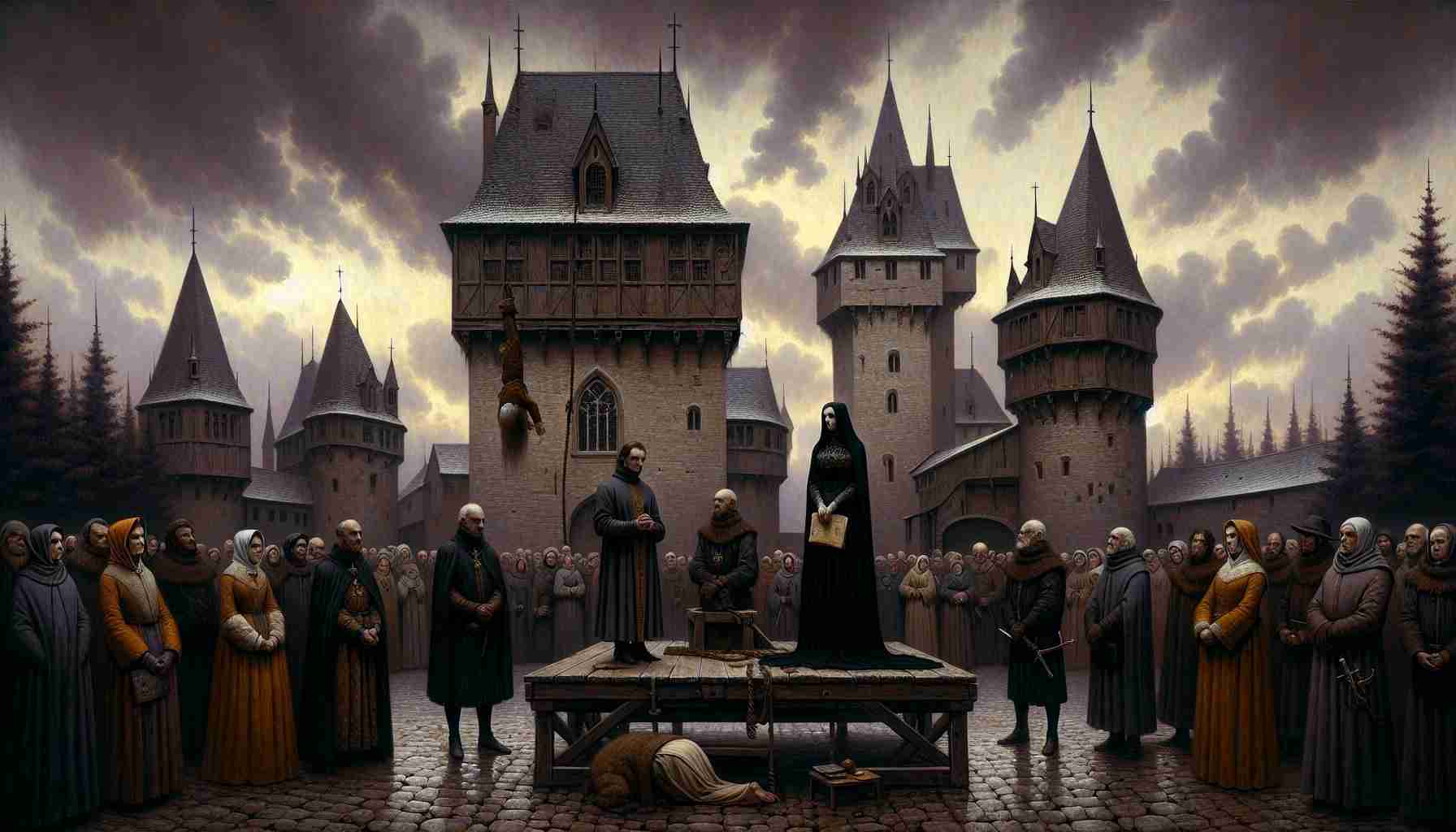

The courtyard of the Tower of London breathed silence, broken only by a trembling wind winding off the Thames. Stone walls—ancient even then—held secrets in their seams, echoing with prayers, betrayal, and blood. Beneath an ashen sky, a scaffold awaited the Queen.
She wore black beneath a gray cloak, her dark eyes alert and strangely calm. Lady Anne Boleyn’s hands, bound loosely before her, clutched a small, worn Book of Hours. Its margins were scribbled with the ink of her own faith—The light shineth in darkness, and the darkness comprehended it not.
The crowd—some noble, most not—had gathered as the sun crested its slow path above the White Tower. Beside her stood Archbishop Cranmer, pale and gaunt, who once had blessed her union with Henry, now stood silent. She had once been the English rose, the king’s obsession, the mother of a Protestant princess. Now, she was simply the ‘concubine executed for treason.’
But treason is a blade sharpened by politics more than proof.
Within her time as Queen, the stirrings of reform swept the realm. She had dared to lend her voice to William Tyndale’s banned English Bibles. In secret, she slipped copies to courtiers. To diplomats. Even to servants. She had whispered that all men should read the Word of God, not just priests cloaked in Latin. She had rendered her chamber a sanctuary where Scripture lived freely.
And for this, demons stirred.
Days before, Anne had been locked in the dim stone cell of the Tower's Queen’s House. There, she read from Romans. "And we know that all things work together for good to them that love God, to them who are the called according to his purpose." Those words she traced again and again, as the windows darkened and footsteps came and went with cruelty. She was charged with adultery, incest, high treason—absurdities, whispered even among her enemies. Yet the trial, bloated with lies, had sealed her fate.
As she mounted the scaffold that morning—May 19, 1536—her small mouth moved with words soft as prayer.
“I die a good Christian woman... I am come hither to die, as I must do. I pray God save the King.”
She laid no curses, though her eyes glinted like steel struck in fire. No bitterness. Only resolve—the kind prophets knew before lions. She knelt gracefully, hands still fastened in prayer. Beside her, a French swordsman, summoned from Calais for his swiftness, gripped the hilt of his curved blade.
There was a breathless moment.
He called for his sword. A ruse. She turned slightly, distracted. Then steel sang.
The blow was clean. Quick. Her body collapsed with a suddenness that shocked the onlookers. Red bloomed on the scaffold planks. Somewhere in the crowd, a woman screamed.
Above, dark clouds veiled the light.
Yet history refused to bury her voice.
Anne Boleyn, once condemned as villain and martyr in alternate turns, became the mother of Elizabeth I—the Gloriana Queen who anchored the Anglican faith in centuries to come. The seed Anne had sown through hidden English Bibles, her boldness in defying Rome’s authority, and her belief that Scripture belonged to the people, all bore fruit long after her head fell from her shoulders.
The Reformation in England, marked in blood and conviction, found its fire kindled in Anne's courage. She had never preached, nor commanded armies, nor reigned with absolute power. But she had believed. She had dared to make her heart a vessel for truth. And through betrayal, imprisonment, humiliation, and death, her faith held fast. Her blood baptized a movement.
The bells of the Tower tolled only briefly after her passing. Yet in towns and hamlets far from London, whispers turned to echoes. Sanctuary walls heard prayers in English. Cloisters dared to leave Latin for the common tongue.
And still, above the noise of time’s forgetfulness, her story stirred.
In ordained silence, her Book of Hours remains at Hever Castle today—her childhood home—a relic of faith under fire. In its margins, beyond the trace of quill, remains conviction’s ink—unfaded.
Anne’s fall was cruel. Her end, unjust. But Scripture, like truth, outruns the blade.
In her death, God sowed purpose.
And Romans 8:28, scrawled into her final hours, became not merely comfort—but prophecy fulfilled.